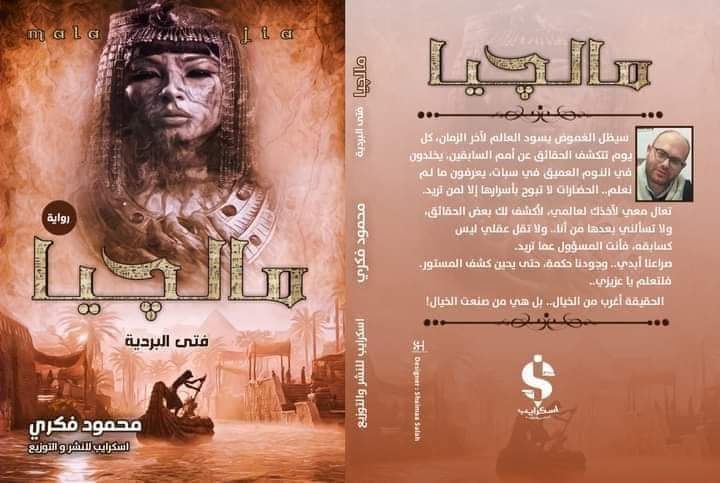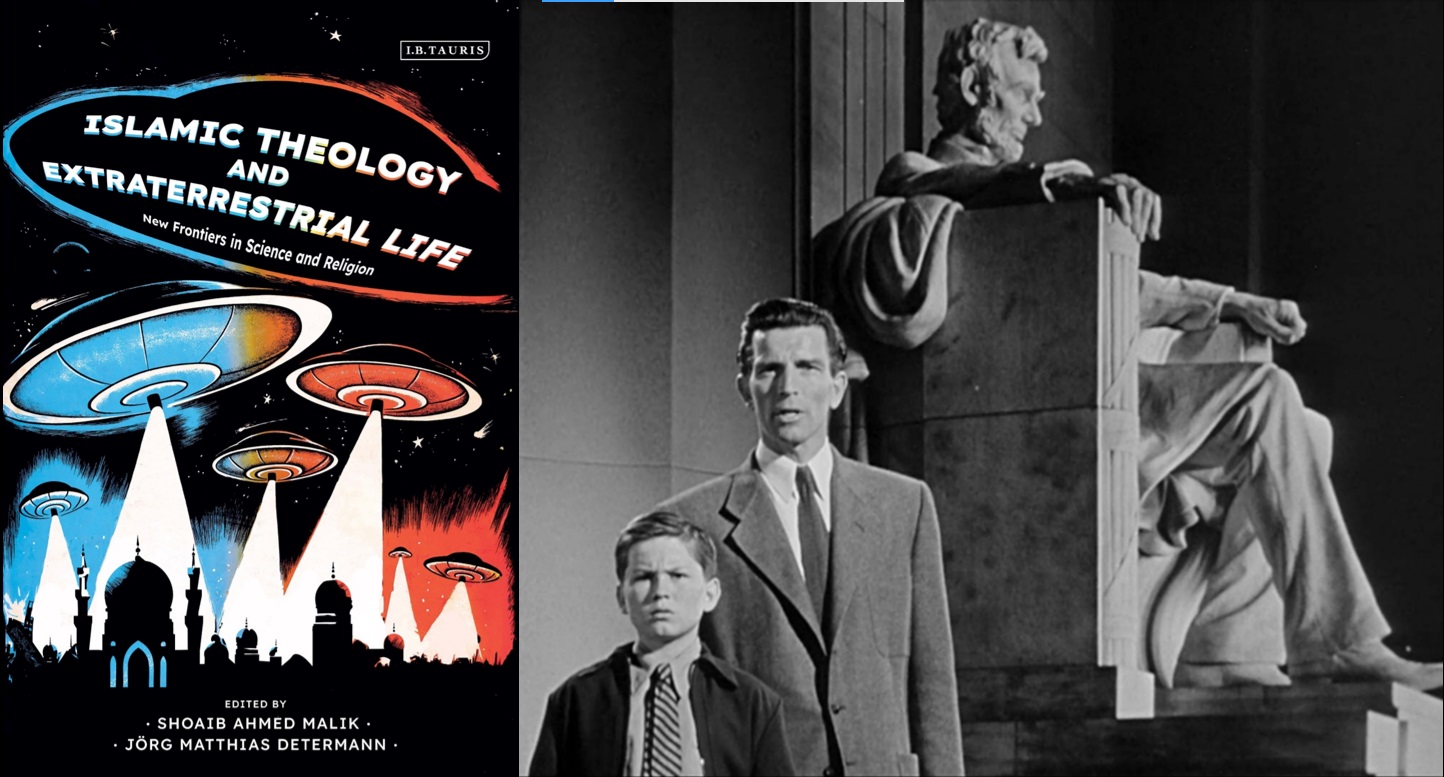
Here’s a new novel to deal with, one I came across at the Cairo International Book Fair but didn’t buy, not knowing for sure whether it was science fiction or horror – Metaverse by Mahmoud Fikry.
By Emad Aysha
It’s a mixture of horror and SF, with the supernatural and hard science in an original blend. You have a near-future world where Egypt is shrouded in darkness because of a nuclear reactor explosion in Germany. And that’s only the start of it.
In this future world, social media is a monitoring system with people’s dreams and daytime experiences recorded via a microprocessor behind your ear. Hence, the ‘metaverse’ we’re all forced to live in.
Then strange occurrences begin to happen, such as discovering some hybrid creatures matching those found in ancient Egyptian inscriptions – half animal and half human.
The hero, Dr. Haroun, is an archaeologist and is sent to a new underground find that disappears from Google Maps when they get there, and then he’s catapulted into the future. Well, one day in the future.
That’s when he discovers the real reason for the fallout that had left Egypt in darkness and how this connects to the true meaning of the metaverse – the realm of parallel dimensions where the jinn and the evil spirits assigned to you reside.
As for hybrids, they are gene-spliced, not ghouls or ghosts, the result of ancient Egyptian alchemy. I can’t tell you more, or it will spoil the novel. And it’s an excellent novel, mind you. Furtive, attractive, nicely written, and relatively compact; a sequel it emerges. And the author is someone to watch out for.
Here are some comments I got from him in the meantime:
I'm a bit disappointed or confused about the ending; why isn’t there a happy ending in general?
“I feel you entered an ‘error’ state while reading! I deliberately meant for the close of the novel to be open-ended. One reader will think the hero has entered a parallel world. Another reader will think he’s mad, while another will believe the devil has tricked him. The truth, however, is the theory of eternal return and awareness.
That is precisely what happened to the hero, that he is in a heightened state of unconsciousness and consciousness and that his mind is ready to enter, to open up, parallel universes in the future.
As for happy endings, most writers have become accustomed to this for the sake of the plot resolution or to make the reader satisfied. I’m not one of those writers. A shocking ending leaves more of an impression in the reader’s mind.
As for Haroun, he is a unique individual, belonging to a Sufi order and possessing the third eye. That’s his problem with the devil because he has the hieroglyphic manuscript that concerns the emblem of the overlordship of the underworld from the time of the Pharaohs.”

Eternal return? Is that a phrase from Nietzsche?
“Yes, it has to do with dimensions in time, not just parallel dimensions in space. Here, the devil repeatedly forces you to travel through these temporal dimensions in a cosmic cycle, making you think you are in charge of your fate.
I connected this to an ancient Egyptian legend about the devil trying to steal the sun's course and how the sun king Ra fought the devil Abib to stop him from taking over time and shrouding the world in darkness.
The theory you find in Nietzsche’s The Gay Science originally comes from ancient Egypt, the notion of resurrection and the afterlife via travelling through the gates of the devil Anubis. Check it out. You’ll find it all there!
I warped this into the metaverse world where your Avatar controls you from afar and uses holograms to resurrect people and entities that are dead and gone.
The Avatar here is your (قرين), your evil doubleganger, the devil assigned to you who knows all your secrets and what you dream and think, and traps you in a time loop to decide you further to make through this cosmic theory.”
Several Egyptian novels are out there called 'Metaverse', all horror.
“You’re right, there are several novels called Metaverse, but I haven’t read any and most likely, they were published after I’d announced my book, in November last year.
The metaverse network is genuinely scary because it is a scientific version of ‘astral projection’, an indirect means to control your subconscious if they place a microchip behind your ear.
It hooks your Avatar ‘into’ you. Astral projection is also what the Sufis use in my novel, and they say that some gifted souls don’t even need special training. Hence, Haroun and his abilities, and his curse.
After getting the okay, Elon Musk is doing research on actualising this. He’s said so openly. I’d like to say I anticipated it all, but I’ve been following the news on this topic for two whole years before writing my novel. My story is a child of its times, the product of its environment.”
What have you written so far, and what’s next?
“Of course, there are two novels, Malgia and Metaverse, and many individual short stories, with a third novel in the works.”






